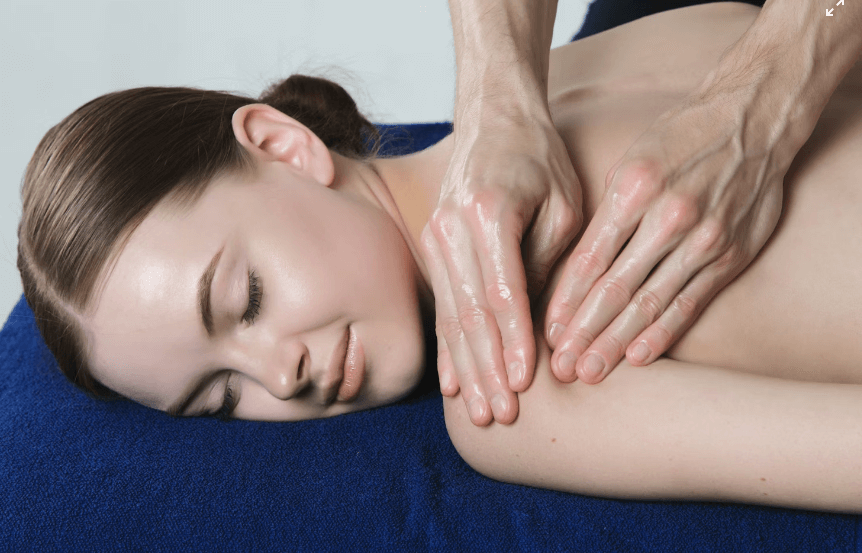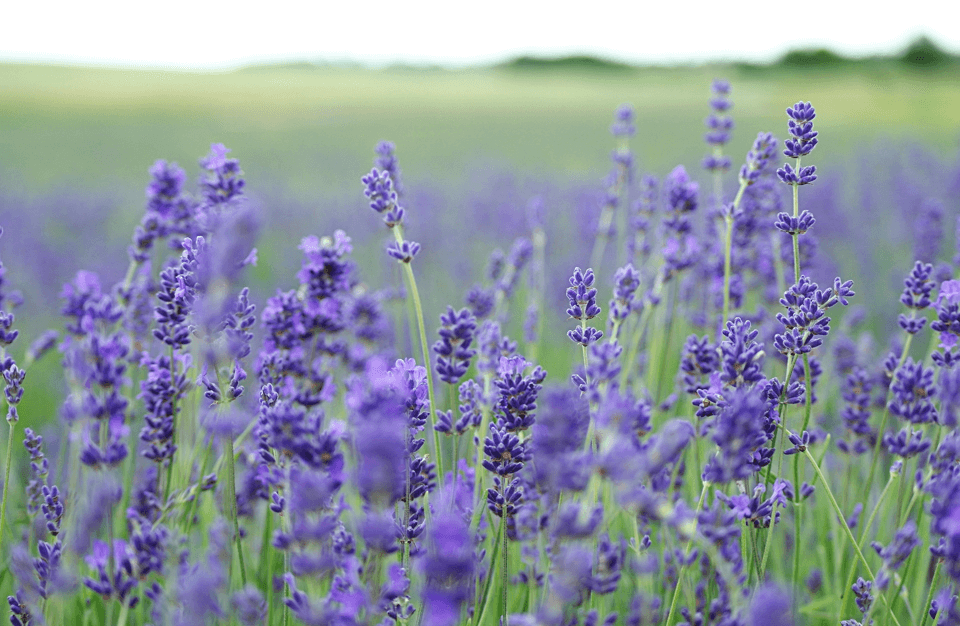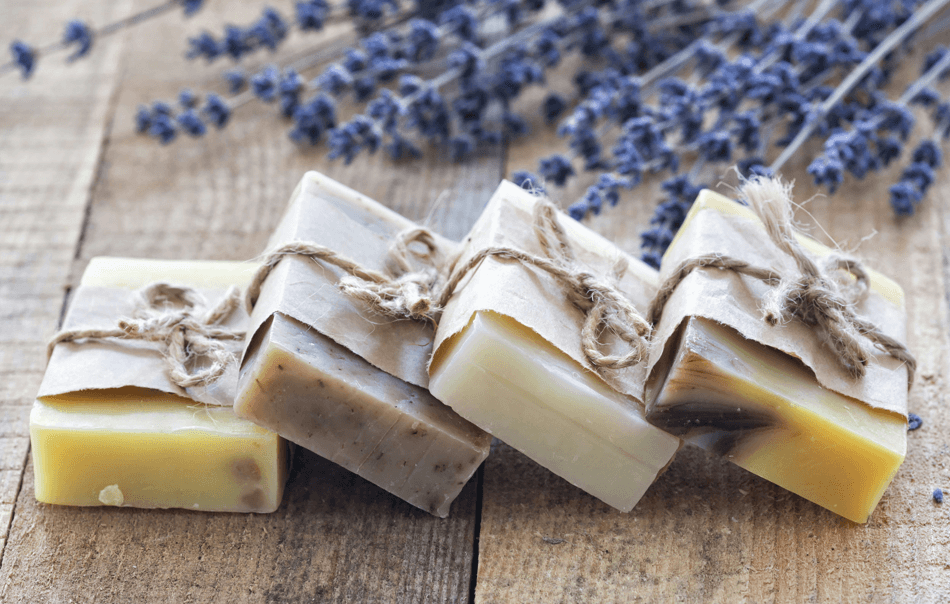African Black Soap: We Answer All Your Most Important Questions

Hey there, beauty enthusiasts!
We've written about African Black Soap elsewhere on this blog - you can easily search for those articles - but this time we wanted to address the questions that are commonly asked about it.
So; let's get stuck in!
What's the Story Behind African Black Soap?
Also known as 'Ose dudu,' it has its roots deep in the heart of West Africa. Originating from the Yoruba communities in Nigeria, the soap quickly spread to Ghana, Togo, and Benin, becoming an integral part of their skincare regimen.
This dark and earthy soap is traditionally crafted using locally harvested plants like plantain skins and leaves, cocoa pods, and shea tree bark, with each tribe having their unique blend of oils and cooking techniques.
How Is African Black Soap Manufactured?
It is traditionally made with a mix of water, oils (palm oil and shea butter), and ashes from plantain skins or cocoa pods. The ingredients are cooked until they form into a thick paste, which is then left to cure for around two weeks before being molded into bars.
Modern manufacturing techniques often incorporate additional natural ingredients like honey, coconut oil, and essential oils for added benefits and fragrance.
What Are the Benefits of African Black Soap?
Now, let's get down to why this soap is creating waves in the beauty world.
- Natural Exfoliator: It gently exfoliates the skin, removing dead cells, helping improve skin texture and leaving you feeling fresh and rejuvenated.
- Skin Detoxifier: Thanks to the natural ingredients, the soap helps detoxify the skin by removing impurities and excess oil.
- Anti-Inflammatory Properties: The soap is known for its anti-inflammatory properties, making it ideal for soothing skin conditions like acne, eczema, and psoriasis.
- Moisturizing Powerhouse: Despite its cleansing abilities, the soap is incredibly hydrating, thanks to the shea butter and plantain extract.
- Other Benefits: It's very effective at removing makeup and can also sooth razor bumps and sun damage, leaving you with glowing skin.How does African black soap differ from Raw African black soap?
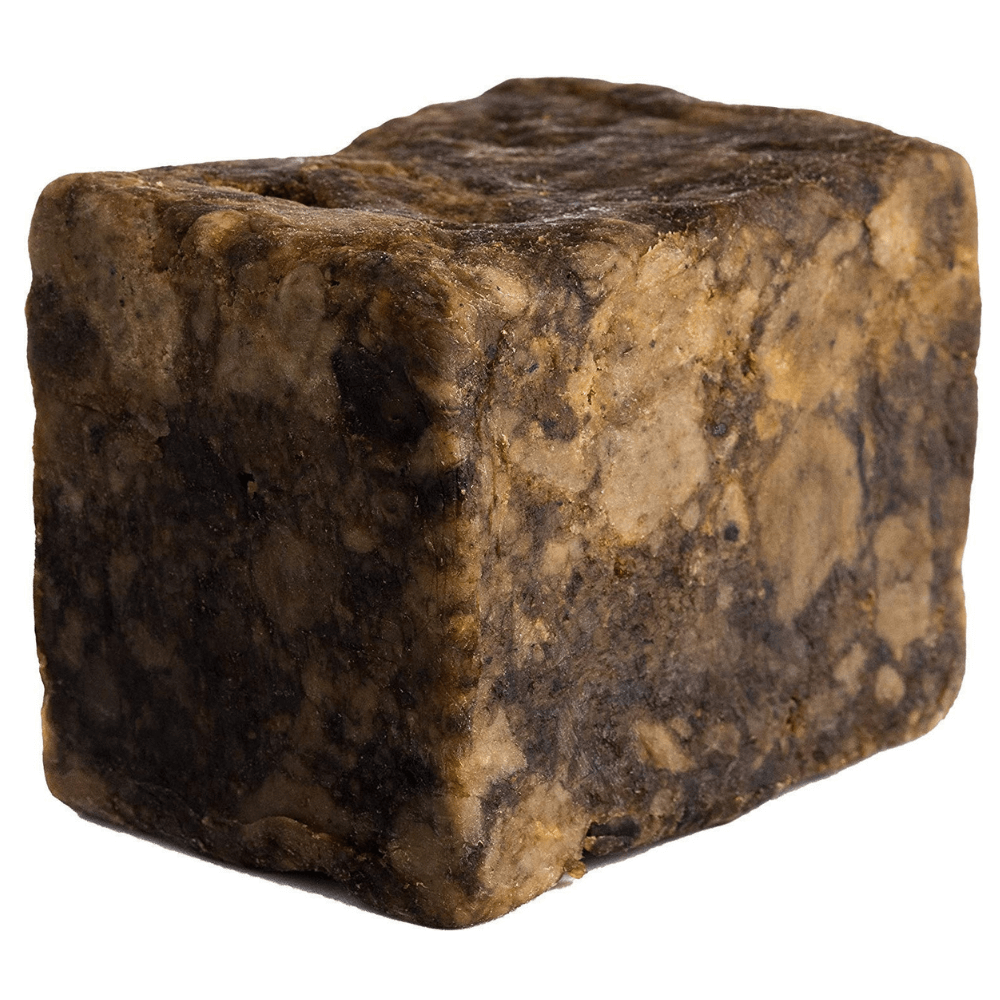
While both African Black Soap and Raw African Black Soap share similar origins and ingredients, their key difference lies in the production process.
Raw African Black Soap is unprocessed, meaning it retains all the natural goodness of its ingredients without any additives. On the other hand, African Black Soap might contain additional ingredients such as coconut oil, honey, and essential oils for added benefits.
Can African black soap be used on all skin types?
Yes, it is suitable for all skin types, including sensitive skin. Its natural and gentle ingredients make it a versatile option for a variety of skin problems.
However, it is important to note that everyone's skin is unique and may react differently to certain products. It is always recommended to patch test on a small area of your skin before incorporating any new product into your routine.
If you experience any irritation or adverse reactions, discontinue use immediately and consult with a dermatologist.
African Black Soap can be used on both the face and body for overall skin benefits.
Is it Ok to use African Black Soap every day?
The answer is...Yes and No.
With its all-natural ingredients and skin-loving properties, it can indeed be a fabulous addition to your daily skincare routine.
While some folks may bask in the glow of using African soap daily, others might find it a tad too drying if used every single day.
It's all about finding the sweet spot that works for your skin type. A patch test and gradual introduction into your routine are always a good idea to see how your skin reacts.
Remember, skincare is not a one-size-fits-all scenario. What works wonders for one might not do the same for another. So, take the time to understand your skin and give it the love and attention it deserves.
How can you incorporate African Black Soap into your skincare routine?
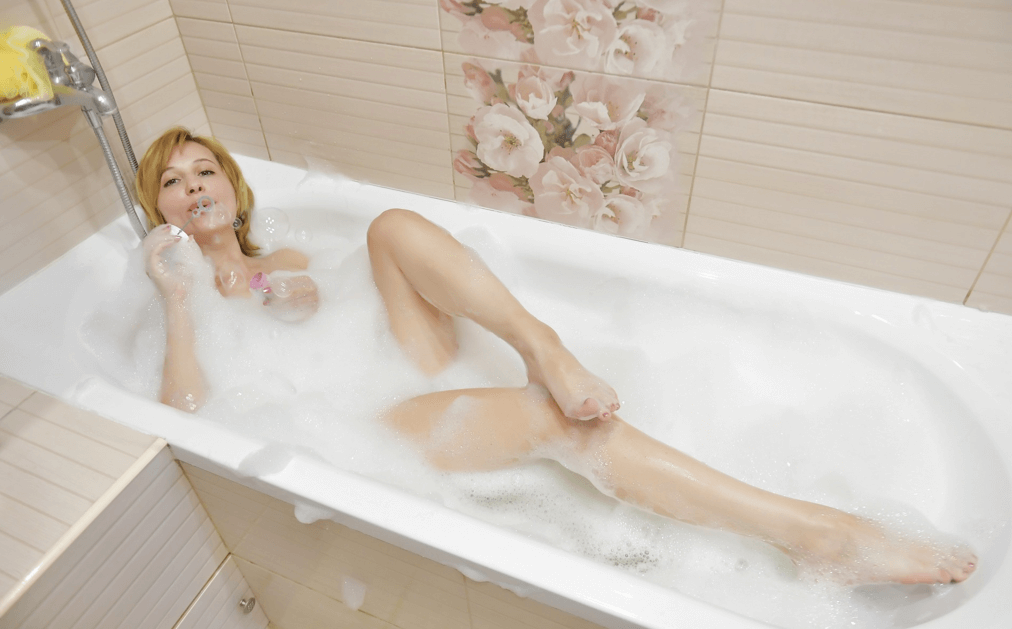
There are many ways to use African soap in your skincare routine. You can use it as a daily cleanser by lathering the soap in your hands and applying it to your face, then rinsing it off with warm water.
For a deeper cleanse, you can create a DIY face mask by mixing equal parts of African black soap and honey. Apply this mixture to your face and leave it on for 10-15 minutes before rinsing off.
It can also be used as a body wash, especially for those with acne-prone skin or body blemishes. Just lather the soap in your hands and apply it to damp skin, then rinse off thoroughly.
Does African black soap clog pores?
No, African Black Soap is non-comedogenic, meaning it does not clog pores.
This is due to its natural and gentle formula that does not contain harsh chemicals or synthetic ingredients.
In fact, the high levels of shea butter in African Black Soap can actually help to moisturize and nourish the skin without causing breakouts.
However, as with any new skincare product, it is always recommended to do a patch test before fully incorporating it into your routine.
Does African black soap damage the skin barrier?
No, African Black Soap is not known to damage the skin barrier. In fact, its natural ingredients and gentle cleansing properties can help strengthen the skin barrier by balancing pH levels and providing nourishment.
Does African black soap help clear skin?
Yes, African Black Soap has been known to help clear skin and improve overall complexion.
Its antibacterial and anti-inflammatory properties can minimize the appearance of acne and other skin conditions by reducing inflammation and preventing bacterial growth.
Additionally, its exfoliating properties can help remove dead skin cells and unclog pores for a brighter, clearer complexion.
Consistent use and incorporating a moisturizer into your routine can also help enhance the effectiveness of African Black Soap for clearer, healthier-looking skin.
What are the disadvantages of African Black Soap?
As much as we love African Black Soap, it's important to note that no product is perfect. While this wonder soap has numerous benefits for the skin, there are a few potential downsides to using it.
Firstly, it may not be suitable for extremely sensitive or acne-prone skin. The high concentration of natural ingredients and essential oils in some versions of the soap may be too harsh for certain skin types, leading to irritation or breakouts.
Secondly, some versions may have a strong and distinct smell that not everyone may enjoy. This can be especially problematic for those with a sensitive sense of smell.
Thirdly, as mentioned before, it can be drying if used too frequently or in large amounts. This can be easily remedied by adjusting your usage and following up with a moisturizer, but it's still worth noting.
Lastly, due to the varying ingredients and production processes used by different makers, there is no standard formula for this product. This means that some versions may have added fragrance or other additives that may not be suitable for certain skin types.
Despite these potential disadvantages, African Black Soap is still a highly effective and popular skincare product. It's important to do your own research and patch test before incorporating it into your routine, but once you find the right version for your skin, the benefits will far outweigh any negatives.
How Do You Store African Black Soap?
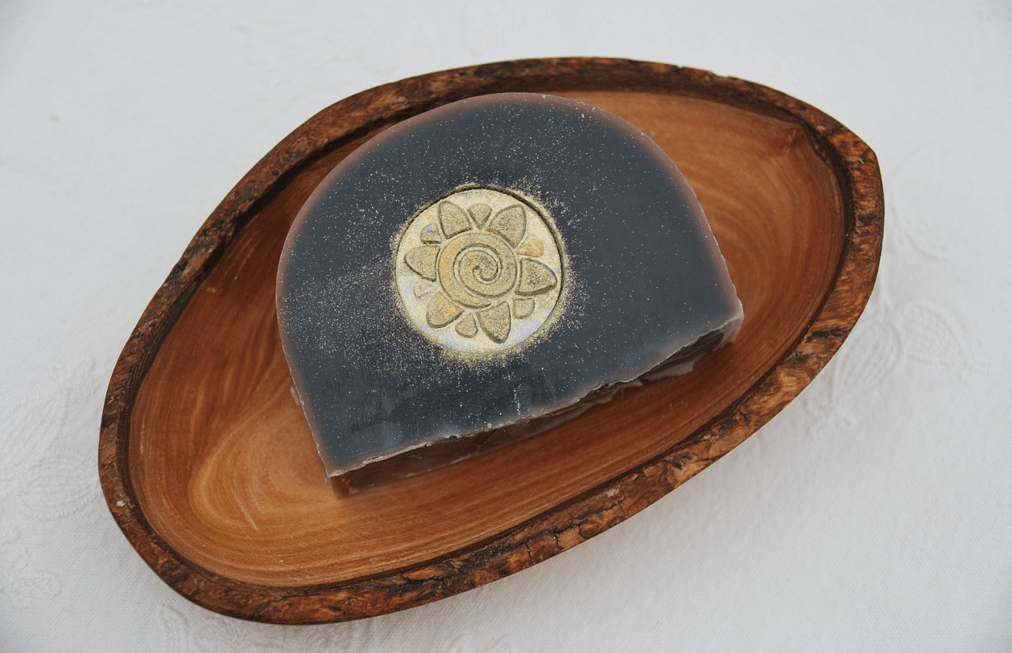
When it comes to storing African Black Soap, there are a few things to keep in mind.
First and foremost, make sure to store it in a cool, dry place away from direct sunlight. This will help prevent any changes in texture or consistency.
It's also important to keep the soap dry between uses. If it sits in water for too long, it can become mushy and lose its effectiveness. Invest in a soap dish with drainage holes or simply pat it dry after each use.
If you're planning to stock up, make sure to check the expiration date as well.
While this product has a longer shelf life than traditional soaps, it's still best to use it within one year of purchase for optimal results.
Is African Black Soap good for hair?
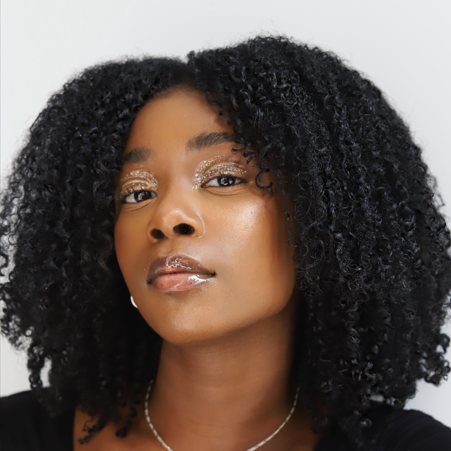
Yes, African Black Soap is not only great for your skin but also for your hair. It can be used as a gentle and natural alternative to traditional shampoos.
The high levels of glycerin in the soap make it very moisturizing and can help improve scalp health and promote hair growth.
Simply lather the soap in your hands and apply it to wet hair. Massage it into your scalp and hair, then rinse thoroughly. You can also mix the soap with water in a spray bottle for a leave-in conditioner.
Some people may experience dryness or tangling after using African Black Soap on their hair, so it's important to follow up with a moisturizing conditioner or oil treatment.
How can you incorporate African Black Soap into your hair care routine?
Its gentle cleansing properties make it suitable for all hair types, including those with sensitive scalps or damaged hair.
To use it in your hair care routine, create a clarifying shampoo by mixing small pieces of the soap with warm water until it forms a liquid.
This can help remove product buildup and excess oils from your scalp without stripping your hair of its natural oils.

You can also use it as a deep conditioner by melting small pieces of the soap and mixing it with your regular conditioner. Leave it on for 10-15 minutes and then rinse out for softer, more manageable hair.
What is the pH of African Black Soap and how does this affect your skin and hair?
The pH level of African Black Soap can vary depending on the manufacturing process and ingredients used, but it typically falls between 7-9. This makes it slightly alkaline, which is different from the more acidic pH levels of our skin and hair.
However, this does not necessarily mean that it is bad for your skin and hair. In fact, many people with sensitive skin or scalp conditions such as eczema and dandruff have found relief by using this soap.
The high levels of natural oils and butters help to balance out the alkaline pH, making it gentle enough for regular use.
What other benefits does African Black Soap have for your skin and hair?
In addition to cleansing and balancing pH levels, it has numerous other benefits for your skin and hair.
Some ingredients commonly found in African Black Soap, such as shea butter, cocoa butter, and palm kernel oil, are known to be moisturizing and nourishing for both skin and hair. This can help improve the overall health and appearance of your skin and hair.
It is also believed to have anti-inflammatory and antibacterial properties, making it an effective treatment for acne, eczema, and other skin conditions.
What does African black soap smell like?
Raw African Black Soap is made from all-natural ingredients and does not contain any added fragrances or perfumes.
It typically has a slightly earthy or nutty scent due to the inclusion of plantain skins and shea butter. Some people may find the smell unpleasant at first, but it is generally not overpowering and can be masked with other scented products if desired.
Depending upon the brand and additional ingredients, the fragrance can vary quite a bit from the unscented product. Some formulations have a sweet and musky scent, a tantalizing blend of licorice and bamboo.
Others have hints of citrus, honey, chocolate, and even aloe vera.
We suggest you start with a fragrance-free raw African black soap and then move on to a fragranced version if you would like to experiment.
Why does my black soap smell bad?
If you've recently purchased African Black Soap and are wondering why it has a strong, unpleasant smell, don't panic. This is completely normal!
As mentioned before, the natural ingredients such as plantain skins and shea butter can give the soap an earthy scent that some people may find off-putting at first.
However, this scent will diminish over time and will eventually become milder with continued use.
Additionally, some manufacturers may also add essential oils or other fragrances to enhance the smell of the soap. In this case, the scent may vary depending on the brand and ingredients used.
Why does my face burn after using African black soap?
If you have experienced a burning sensation on your face after using African Black Soap, it could be due to two reasons - either you have sensitive skin or you are not using the soap properly.
It is known for its powerful cleansing properties and can sometimes be too harsh for delicate facial skin. If this is the case, it is recommended to dilute the soap with water or use it sparingly on the face.
On the other hand, if you are using the soap correctly and still experiencing a burning sensation, it could be due to an allergic reaction. It is important to always patch test new skincare products before incorporating them into your routine.
Does African black soap help with body odor?
It is not specifically designed to target body odor, but many users have reported a reduction in body odor after using it. This is because the natural ingredients in the soap help to cleanse and deodorize the skin.
For people who struggle with excessive sweating or strong body odor, it can be a helpful alternative to traditional chemical-based deodorants.
It is important to note, however, that individual results may vary and this soap may not completely eliminate body odor for everyone.
What is the difference between Moroccan soap and African black soap?
Both Moroccan soap and African Black Soap have been used for centuries as traditional cleansing and skincare products. However, there are some key differences between the two.
Moroccan soap, also known as Beldi soap, is made from olive oil and macerated olives. It is usually light brown or green in color and has a smooth, gel-like texture.
This type of soap is typically used as a body exfoliator, and it is known for its ability to leave the skin soft and moisturized.

On the other hand, African Black Soap is made from plantain skin ash, cocoa pod ash, palm oil, and shea butter. It has a dark brown or black color and a crumbly texture.
This soap is often used for both face and body cleansing, as it can help to improve a variety of skin concerns such as acne, eczema, and psoriasis.
Overall, while both soaps have beneficial properties for the skin, they serve different purposes. Moroccan soap is primarily used for exfoliation and moisturization, while African soap is more versatile in addressing various skin issues.
How can you tell if African black soap is real?
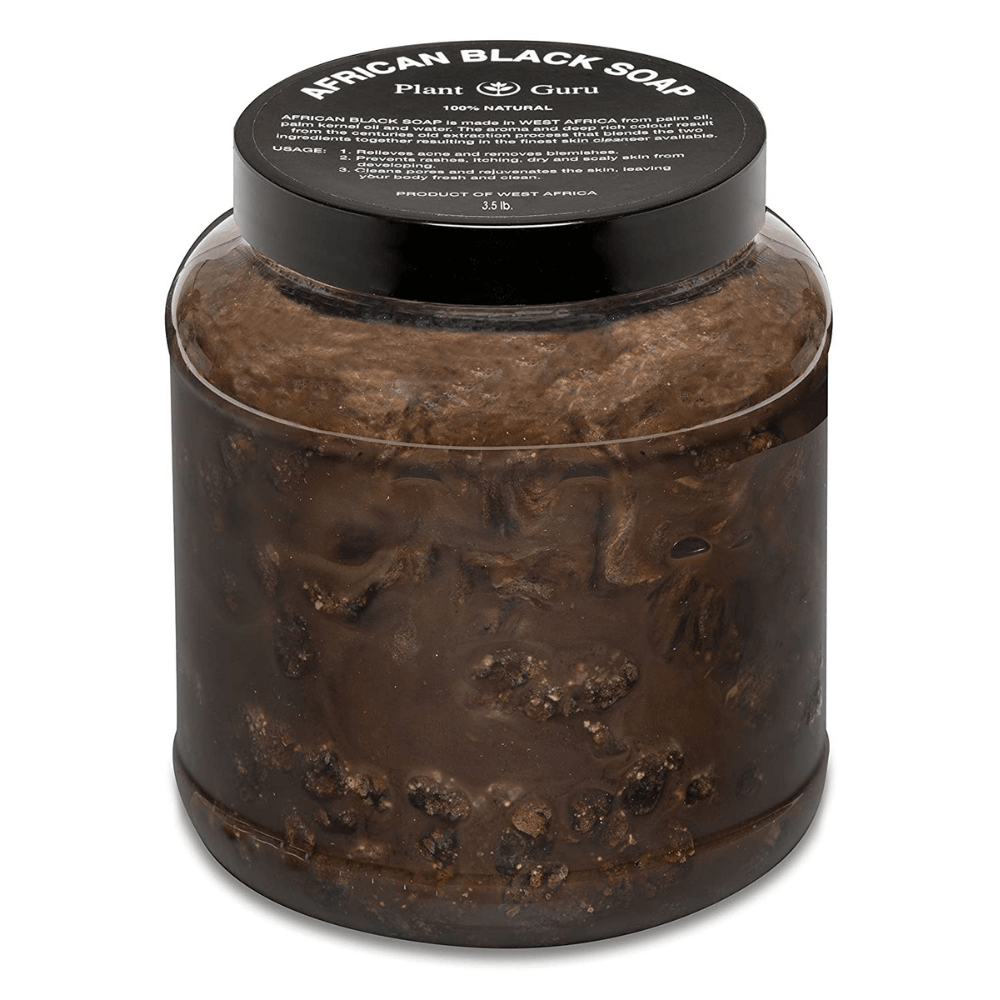
Authentic African Black Soap is made with natural ingredients and does not contain any artificial additives or preservatives.
Here are some ways to determine if the African Black Soap you have is real:
- Check the color: It should have a dark brown or black color, due to its main ingredient of plantain skins being roasted until ash.
- Look for a crumbly texture: African soap is not smooth like traditional soaps, it has a rough and crumbly surface due to the absence of synthetic ingredients.
- Read the ingredients list: Authentic African soap will only contain natural ingredients such as plantain skins, cocoa pods, palm oil, and shea butter.
- Notice the scent: Real black soap has a natural, earthy scent from the plant-based ingredients used in its production. It should not have added fragrances.
- Test for purity: When mixed with water, it should produce a rich lather that is brown or black in color. If the soap does not create this type of lather, it may be diluted or contain artificial additives.
It is important to purchase African Black Soap from reputable sources to ensure its authenticity and effectiveness.
Using fake or diluted African soap may not provide the same benefits for your skin. Always check the ingredients list and trust your senses when determining if a product is real or not.
How long does African black soap last?
Since African soap does not contain any preservatives, its shelf life may vary depending on the specific brand and ingredients used.
Generally, it can last anywhere from 6 months to a year if stored properly in a cool, dry place.
How does African black soap compare to other cleansing options?
African Black Soap stands out among other cleansing options because of its natural and gentle ingredients. It does not contain harsh chemicals or additives that can strip the skin of its natural oils.
Additionally, it is an affordable option compared to many commercial cleansers on the market.
However, it is important to note that everyone's skin reacts differently, so what works for one person may not work for another.
It is always best to do a patch test and consult with a dermatologist before incorporating any new product into your skincare routine.
Final Thoughts
Incorporating African Black Soap into your skincare and hair care routine can have numerous benefits for both your skin and overall well-being. Its natural ingredients and gentle cleansing properties make it a great alternative to harsh chemical products.
So why not give it a try and see the difference it can make? Remember to choose high-quality, authentic African Black Soap for best results.



